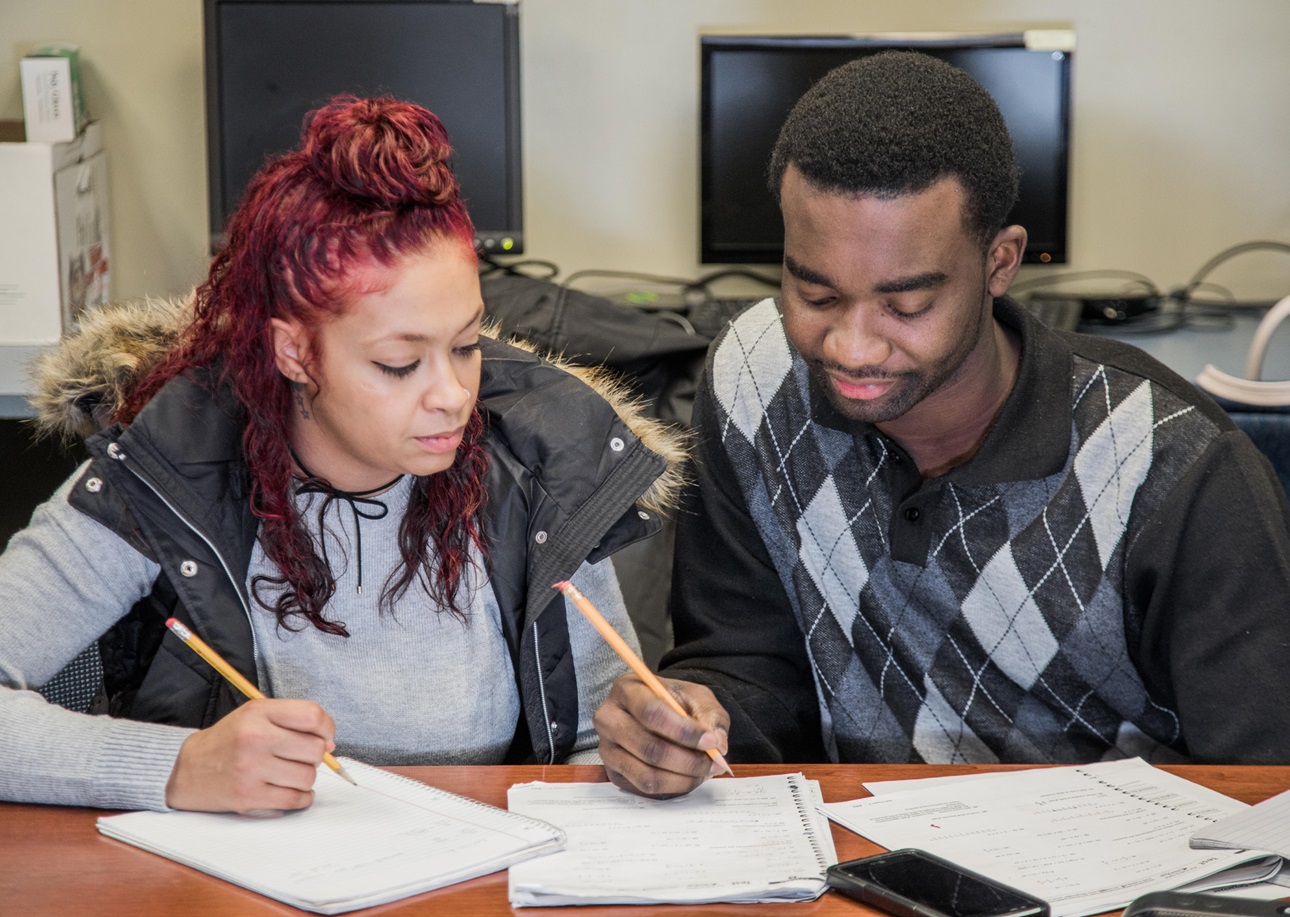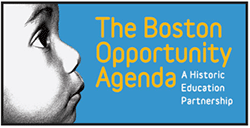
Boston Opportunity Youth Collaborative
Twenty years of work to reconnect opportunity youth.
The Boston Opportunity Youth Collaborative (OYC), co-convened by the Boston Opportunity Agenda (BOA) and the Boston Private Industry Council (PIC), began in the spring of 2013 with support from the Aspen Opportunity Youth Incentive Fund (now the Aspen Opportunity Youth Forum). The OYC is a cross-sector group, whose members include the Boston Public Schools (BPS), Bunker Hill Community College (BHCC), local community-based organizations, foundations, and city and state agencies. The OYC is part of a national movement to build pathways to education, employment, and economic independence for opportunity youth—16-24 year-olds who are disconnected from education, employment, and training. Early research showed that most of Boston’s Opportunity Youth had a high school credential, so the OYC decided to focus on postsecondary pathways for opportunity youth ages 18-24.
Strategy
The Opportunity Youth Collaborative focuses on four core strategies:
Data 4 Impact (D4I), a partnership among the PIC, BOA, the BPS, and BHCC, is focused on identifying student cohorts that are at high-risk of disengaging from school and using data to drive targeted interventions. D4I uses data dashboards as a continuous improvement tool for interventions designed to keep young people connected to school. The initiative is funded by the Aspen Institute for Community Solutions, with support from the Ballmer Group.
The BPS efforts, in partnership with the Office of Opportunity Youth, and Office of Data & Accountability, focus on chronic absenteeism, using Panorama, a new database that tracks chronic absentees and school-based interventions to improve attendance and inform policy. BHCC is focusing on improving outcomes for BPS graduates, especially students of color, through close attention to disaggregated student performance data. The HOPE (Halting Oppressive Pathways in Education) Initiative, which brings together faculty and students of color in a learning community centered on anti-racism, is a key partner. HOPE Ambassadors are male students of color who poll fellow students and provide feedback to the college on policy and practice.
Building strong, durable partnerships through a shared vision and shared activities is at the core of our strategy to improve career outcomes. The OYC leverages major institutions like the Boston Public Schools and Bunker Hill Community College to help build their capacity to deliver career pathways at scale. Given the importance of a college credential in Boston, our current pathway work focuses on leveraging the existing college coaching initiative, Success Boston. In addition to Success Boston college navigation coaches, the OYC’s HOPE Forward coaches work with HOPE to provide coaching to opportunity youth and young men of color at BHCC. PIC career coaches provide career exploration, planning, and employment support.
Young Adult Career Center Services - In a pilot initiative, Jewish Vocational Services (JVS), with support from the PIC, the Mayor’s Office of Workforce Development, and the BPS, is launching young adult career center services. The program, which will employ outreach workers as well as coaches, will bring young adults into the career center at JVS to access career coaching, employment connections, and job-training referrals. This new initiative will focus on (1) recent BPS graduates who are not in college, (2) Workforce Investment and Opportunity Act (WIOA) Youth participants, (3) community college stop-outs, and (4) other 18-24-year-olds not enrolled in postsecondary education or training.
In partnership with the United Way of Massachusetts Bay, the OYC recently completed a youth voice project focused on mental health. The five key elements of Healing Centered Organizing are: Engaging in critical analysis and fight for structural change, promoting physical and mental health, engaging in community building, ensuring youth leadership and ownership, and fostering relevance and meaning. During the pandemic, PIC career coaches organized mental health peer leadership training led by a local BIPOC-owned therapy practice. The young adult participants further engaged with the community to advocate for mental health services for young people, with some participating as youth ambassadors on a mental health advisory council organized by a Boston City Councilor. OYC’s Healing Centered Youth Organizing project, funded by Aspen’s Youth-Led Change Fund, hired these young adults to continue the project and held a conference for young adults on the issue.
Setting targets to reduce youth disconnection:
The OYC used local Census data to estimate the number of Opportunity Youth (OY) living in Boston between 2007 and 2019. In 2018,we adopted Aspen’s Common Measures, which disaggregate OY into three groups; those disconnected from high school, postsecondary, and the workforce. In 2020, we set targets for reducing disconnection after the spike in disconnection rates caused by the pandemic:
- Reduce the overall community disconnection rate by 19% by 2025.
- Reduce the high school disconnection rate by 34% by 2025.
- Reduce the postsecondary disconnection rate by 9% by 2025.
- Reduce the workforce disconnection rate by 26% by 2025.
Challenges that inform and drive our current and future work are the persistent race-ethnic gaps in secondary and postsecondary completion, the continued impact of the pandemic on youth participation in education, training and employment, and the decrease in college enrollments, particularly among students of color. We remain committed to addressing these challenges with urgency and focus.
Read the measures set by the OYC, with support from Measure of America, and the OYC’s progress against goals.
Steering Committee
Ayesha Cammaerts
Boston Opportunity Agenda
Fernanda Queirós Campbell
Boston Opportunity Agenda
Kathy Hamilton
Boston Private Industry Council
Kedan Harris
Boston Public Schools
Brian Marques
Boston Public Schools
Marisa Colon
Angell Foundation
Arelene Vallie
Bunker Hill Community College
Evans Erilus
Bunker Hill Community College
Stephanie O’Shea
CollegeBound Dorchester
Laura Cinelli
Rennie Center for Education Research and Policy
Antoniya Marinova
Success Boston
Katy Gall
Mayor’s Office of Workforce Development
Pedro Cruz
Mayor's Office of Youth Engagement and Advancement
Amanda Shabowich
United Way of Massachusetts Bay and Merrimack Valley
Don Sands
X-Cel Education
Tyra Anderson-Montina
Year Up
